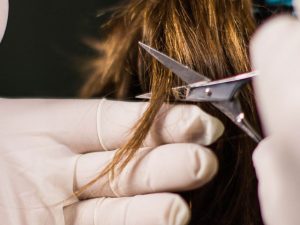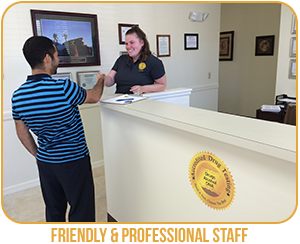
Drug & Alcohol Testing Centers, Weldon, CA
Accredited Drug Testing Inc, is the nation's leading provider of drug, alcohol, occupational health, and DNA testing and has testing centers in Weldon, CA and throughout the local area. Testing centers are within minutes of your home or office and same day service is available in most cases.
105 5th Ave E 292.4 miles
Scobey, MT 59263
448 W LAUREL AVE 293.8 miles
PLENTYWOOD, MT 59254
702 1ST ST SW 295.0 miles
CROSBY, ND 58730
115 MAIN ST 307.0 miles
LIGNITE, ND 58752
317 1ST AVE NW 328.2 miles
KENMARE, ND 58746
307 1ST AVE NW 328.2 miles
KENMARE, ND 58746
504 1ST ST SE 333.7 miles
MOHALL, ND 58761
310 2ND ST E 335.4 miles
WESTHOPE, ND 58793
710 N WELO ST 335.4 miles
TIOGA, ND 58852
1137 2ND AVE W STE 103 FAIRLIGHT MEDICAL CENTER 336.9 miles
WILLISTON, ND 58801
210 Riverside Dr 338.6 miles
Poplar, MT 59255
621 3RD ST S 339.9 miles
GLASGOW, MT 59230
315 KNAPP ST 340.3 miles
WOLF POINT, MT 59201
310 AIRPORT RD STE 2000 340.9 miles
WILLISTON, ND 58801
424 32ND AVE W 340.9 miles
WILLISTON, ND 58801
3620 2nd Ave W 341.5 miles
WILLISTON, ND 58801
107 22ND ST W 341.7 miles
WILLISTON, ND 58801
1321 W DAKOTA PKWY 341.8 miles
WILLISTON, ND 58801
1213 15TH AVE W 342.2 miles
WILLISTON, ND 58801
512 MAIN ST 342.8 miles
WILLISTON, ND 58801
3 4TH ST E 342.9 miles
WILLISTON, ND 58801
401 2ND ST W 343.0 miles
WILLISTON, ND 58801
311 S 8TH AVE E 343.3 miles
MALTA, MT 59538
120 S MAIN ST 346.5 miles
STANLEY, ND 58784
615 6TH ST SE 346.6 miles
STANLEY, ND 58784
Drug and alcohol testing services are provided for employers and individuals and are administered for various reasons including Employment related such as pre-employment, random, post accident and reasonable suspicion, also US DOT-Part 40, Court Ordered, School and personal reasons.
Scheduling a drug, alcohol or any testing service at any of our Weldon, CA testing facilities is simple and easy. Call (800)221-4291 or you may schedule a test online 24/7 by clicking below and receive your donor pass/registration form with the testing center address and instructions via email.

Customer Service Is Our #1 Priority- Our Drug Testing centers recognize that needing a drug, alcohol or occupational health test can be stressful at times. Accredited Drug Testing takes the stress out of a stressful situation and is available to answer any questions you may have and provide our services in a friendly, courteous and confidential manner. Call our scheduling department today at (800)221-4291.
View all available drug testing services
Types of Drug Testing Methods Available
Our testing centers provide many types of drug testing methods, below is a brief description of each method choose the one that is right for your need.

Urine Test - Urine - Accredited Drug Testing provides drug testing utilizing the Urine screening method. Urine drug testing can be screened for 5, 7, 9, 10, 12 and 15 panel screenings. Urine drug tests can also include an expanded opiates analysis. Same day service is available and testing centers are located in all cities and in most cases within minutes from your home or office. The detection period for a urine drug test is up to 3-5 days and results are reported in most cases in 2- 3 days.
The procedure for a urine drug test is simple. A donor provides a urine specimen in a cup to a drug testing collection specialist who will then seal the specimen cup, complete various documentation including a chain of custody form, have the donor initial the specimen cup seal, provide identification and upon completion of the collection and paperwork the specimen will be sent in a secure manner by Currier to the laboratory for testing.
Hair Drug Testing - Accredited Drug Testing can provide a drug test utilizing the Hair follicle drug test method and a Hair drug test can be tested for 5, 10, and 12 panel screenings. The detection period for a hair drug test is up to 90 days and results are reported in most cases in 3 -5 days.
The hair drug test is becoming more frequently used by employers, courts and other government agencies due to the fact that the window of detection for illegal drug use for a hair is up to 90 days. Many courts have begun accepting hair testing in place of urine or blood testing and hair testing has been determined to be legally and scientifically admissible evidence in a court of law.
A hair drug test is a simple process whereby a drug testing collection specialist cuts approximately 120 strands of hair from the head or a specific amount from the body and submits the hair to a certified laboratory for analysis. A hair follicle drug test can be screened for a 5 panel, 10 panel or 12 panel test and can also include expanded opiates. If a donor does not have 1 ½ inches of hair on their head, body hair can be utilized, however, if the donor is bald and has none or very little body hair, a hair drug test is not an available option, a urine or oral/saliva test should be utilized.
In addition to our standard drug test panels, opioid screening can be added to any drug test to determine the use and/or abuse of any prescription drugs.


US DOT Testing and Part 40 Compliance - Accredited Drug Testing provides DOT drug testing for pre-employment, post-accident, reasonable suspicion and return to duty for companies or employees regulated and covered by 49 CFR Part 40 including FMCSA, USCG, FTA, FRA, FAA, PHMSA. The drug test required by the Department of Transportation is a 5-panel urine test, which must be analyzed by SAMHSA certified laboratory and verified by a Medical Review Officer (MRO).
Additional DOT services include:
- -DOT Consortium Membership (random testing)
- -DOT Supervisor Training
- -MVR Reports
- -DOT Drug Policy Development
- -DOT Physicals
- -DOT Breath Alcohol Testing
Our Weldon, CA testing centers have certified DOT drug testing collection specialists who are trained in the proper collection of a DOT drug test.
The Opioid Overdose Crisis
Every day, more than 130 people in the United States die after overdosing on opioids. The misuse of and addiction to opioids—including prescription pain relievers, heroin, and synthetic opioids such as fentanyl—is a serious national crisis that affects public health as well as social and economic welfare. The Centers for Disease Control and Prevention estimates that the total "economic burden" of prescription opioid misuse alone in the United States is $78.5 billion a year, including the costs of healthcare, lost productivity, addiction treatment, and criminal justice involvement.
- Roughly 21 to 29 percent of patients prescribed opioids for chronic pain misuse them.
- Between 8 and 12 percent develop an opioid use disorder.
- An estimated 4 to 6 percent who misuse prescription opioids transition to heroin.
- About 80 percent of people who use heroin first misused prescription opioids.
- Opioid overdoses increased 30 percent from July 2016 through September 2017 in 52 areas in 45 states.
- The Midwestern region saw opioid overdoses increase 70 percent from July 2016 through September 2017.
- Opioid overdoses in large cities increase by 54 percent in 16 states.
In the late 1990s, pharmaceutical companies reassured the medical community that patients would not become addicted to prescription opioid pain relievers, and healthcare providers began to prescribe them at greater rates. This subsequently led to widespread diversion and misuse of these medications before it became clear that these medications could indeed be highly addictive.3,4 Opioid overdose rates began to increase. In 2017, more than 47,000 Americans died as a result of an opioid overdose, including prescription opioids, heroin, and illicitly manufactured fentanyl, a powerful synthetic opioid.1That same year, an estimated 1.7 million people in the United States suffered from substance use disorders related to prescription opioid pain relievers, and 652,000 suffered from a heroin use disorder (not mutually exclusive)

Court Ordered Testing - Accredited Drug Testing and our Weldon, CA drug testing centers also provide drug and alcohol testing for probation and other court ordered testing requirements. Testing services include ETG alcohol testing and drug testing utilizing urine and hair methods. Test results can be sent directly to Probation Officers, Judges, Attorneys or other parties as required. Strict confidentiality is assured.
Alcohol Testing - Accredited Drug Testing and our Weldon, CA testing centers provide alcohol testing including ETG testing in both urine and hair and Breath Alcohol Testing (BAT). Alcohol testing can be added to any drug test screening.


Testing Facilities Nationwide - In addition to our drug and alcohol testing centers in Weldon, CA and the local area, Accredited Drug Testing has company owned and affiliated collection sites in all States and most cities to serve our clients' needs when traveling or employment related testing is required in multiple cities or States.
On-Site/Mobile Testing - Time Is Money!- Accredited Drug Testing provides On-Site drug testing services in all cities nationwide and can be used for construction sites, sporting events, job fairs and trucking/transportation companies, on site testing is available for DOT and NON-DOT regulated employers. In most cases, on-site mobile testing is cost effective when you have 10 or more employees needing to be drug or alcohol tested without leaving the job site.


Employer testing/account setup - If you are an employer with at least 5 employees and would like to set up an account for future testing, it's simple and easy. Call us and speak with a client relations representative, (800)221-4291 it takes 5 minutes or less to complete. Account benefits include no setup fees, test discounts, invoicing, test status tracking and personalized customer service.
Does Your Company Have a Written Drug Policy? - Employee Drug & alcohol testing is utilized best when conducted in conjunction with a clear, written drug policy that is shared with all employees, along with employee education about the dangers of alcohol and drug abuse, supervisor training on the signs and symptoms of alcohol and drug abuse, and an Employee Assistance Program (EAP) to provide help for employees who may have an alcohol or drug problem. If your company does not have a written drug and alcohol policy or your current policy needs to be revised, Accredited Drug Testing specializes in the development and implementation of an employer's drug and alcohol policy which complies with state and federal law.
DNA Testing Services -Accredited Drug Testing provides DNA testing at testing centers Nationwide for paternity, immigration, and family relationship purposes. DNA testing centers are located in most cities and within minutes of your home or office.
DNA testing can provide an accurate determination of the probability of paternity at 99% more of who the child's biological father or mother is. The initial DNA test takes only a few minutes at the testing center and involves the swabbing of the child and alleged fathers mouth, which will provide saliva to be analyzed by a certified laboratory. Our DNA results are analyzed by a certified AABB laboratory and can be used in a legal proceeding to determine paternity or child custody related issues.

"When you need a test, choose the best!"
Alcohol Testing Weldon, CA Services
(800)221-4291
For more information regarding the effects of drug abuse - Click Here
For more information on a drug free work place - Click Here
Handy Resources
Comprehensive Online Resources for Drug Testing
- National Institute on Drug Abuse (NIDA)
Provides comprehensive information on drug testing and its role in substance use disorder treatment.
- FDA: Drug Testing
Explains the FDA's role and regulations concerning drug testing for consumers.
- PDR.net
Provides detailed drug information and safety updates through a mobile-friendly platform.
- BeSafeRx - FDA
Resource by the FDA to help consumers identify and choose safe online pharmacies.
- SAMHSA: Drug Testing Resources for the Workplace
Resources and guidelines for drug testing in the workplace.
- Drugs.com
Provides drug information, side effects, and interactions for consumers and professionals.
- Drug Abuse Screening Test (DAST)
Online version of the DAST to help individuals assess whether they have a drug problem.
- Merck Manuals
Consumer-friendly medical resource providing comprehensive information on a wide array of health topics, including drug testing.
- SAMHSA Store
Provides access to resources and publications on substance use prevention and treatment.
- National Association of Boards of Pharmacy (NABP)
Information on state boards of pharmacy and regulations, including those related to drug testing.
- CDC: Workplace Health Promotion
CDC's resources on substance use and drug testing in the workplace.
- Mayo Clinic: Drug Testing
General information about the procedures and types of drug tests.
- MedlinePlus: Drug Testing
Offers information about various drug tests and their uses in medical diagnosis and treatment.
- University of Rochester Medical Center Health Encyclopedia
Provides a detailed entry on drug testing, including how tests are conducted and what they detect.
- World Health Organization (WHO)
International guidelines and information on public health, including substance abuse and drug testing.
- Healthline: Drug Testing
Consumer health site offering information on how drug tests work and what they look for.
- WebMD: Drug Testing
Provides a patient-oriented overview of drug testing and its purposes.
- National Center for Biotechnology Information (NCBI)
Provides a vast database of scientific studies, including research on drug testing and its effectiveness.
AI Overview
Overview of Drug Testing Collection Centers
Drug testing collection centers are specialized facilities where individuals submit biological samples for drug testing. These centers play a crucial role in the drug testing process, serving industries such as transportation, healthcare, sports, and many sectors requiring workplace safety and compliance with drug-free policies. This overview details the functions, types of tests conducted, and what individuals can expect during a visit to a drug testing collection center.
Functions of Drug Testing Collection Centers
Collection centers are primarily responsible for the secure and proper collection of samples, ensuring that they are uncontaminated and accurately reflect the subject's drug use status. They adhere to strict procedures to maintain confidentiality and integrity of the testing process.
Types of Tests Conducted
- Urine Testing: The most common form of drug testing, used to detect recent use of drugs such as marijuana, cocaine, opiates, amphetamines, and others.
- Hair Follicle Testing: Provides a longer detection window compared to urine testing and is used to analyze drug use over a period of months.
- Saliva Testing: Used for its non-invasive nature and ability to detect immediate drug use.
- Blood Testing: Although less common due to its invasive nature, it is the most accurate form of drug testing.
What to Expect at a Collection Center
- Identification Verification: Upon arrival, individuals must present valid identification to ensure that the samples correspond to the correct person.
- Sample Collection: Trained professionals collect samples in a manner that minimizes the chance of tampering or contamination. This might involve measures such as securing personal belongings and direct observation during sample provision.
- Chain of Custody: Each sample is handled with a documented chain of custody procedure to maintain its integrity from collection to testing laboratory.
Importance of Collection Centers
Drug testing collection centers are vital for ensuring the effectiveness and reliability of the drug testing process. They provide essential services that help employers maintain a safe and productive workplace, enforce legal and regulatory requirements, and assist in rehabilitation processes. The professionalism and accuracy practiced by these centers are crucial for upholding the trust and safety standards expected in many professional environments.
Were you looking, instead, for:
Local Area Info: Caroline Weldon
Caroline Weldon (December 4, 1844 - March 15, 1921) was a Swiss-American artist and activist with the National Indian Defense Association. Weldon became a confidante and the personal secretary to the Lakota Sioux Indian leader Sitting Bull during the time when Plains Indians had adopted the Ghost Dance movement.
Caroline Weldon was born Susanna Karolina Faesch on December 4, 1844 in Kleinbasel, Canton Basel, Switzerland. Her father was Johann Lukas Faesch, a career Swiss mercenary military officer serving in a Swiss regiment in France; her mother was Anna Maria Barbara, née Marti. She arrived in America in 1852, together with her mother, settling in Brooklyn. That year, her mother was remarried to the exiled German revolutionary and physician, Dr. Karl Heinrich Valentiny, who ran a medical practice in Brooklyn. In 1866, Susanna Carolina Faesch was married in Brooklyn to Dr. Bernhard Claudius Schlatter, a physician and fellow Swiss. Her marriage to Schlatter remained childless and was an unhappy one. In June 1876 she ran away with a married man identified in court records as Christopher J. Stevenson. Living with Stevenson briefly in a rented apartment in Hoboken, NJ, she gave birth to a child in late 1876 or early 1877, a boy she named Christie. However her romantic relationship with Stevenson did not last for he would soon abandon her to return to his wife of many years. Caroline was compelled to return to Brooklyn to live with her mother and stepfather. Her estranged husband Bernhard Schlatter filed for divorce which was granted in 1883.
Weldon pursued her interests in art. After her divorce from her husband and having been abandoned by her lover she became committed to the cause of Native Americans. Upon the death of her mother in 1887 she had inherited some money which gave her the means to freely pursue her interests. Sometime thereafter she changed her name to Caroline Weldon, presumably to allow her to put her past behind her, although her exact reasons for this action remain unknown. In the summer of 1889 Caroline Weldon traveled to Dakota Territory to fulfill her dream of living among the Sioux. She had joined NIDA, the National Indian Defense Association, headed by Dr. Thomas Bland and his wife Cora Bland, embarking on a quest to aid the Sioux in their struggle to fight the US government’s attempt under the Dawes Act to expropriate vast portions of the Great Sioux Reservation for the purpose of opening same up for white settlement and with the intent of rendering the creations of the two new states of North Dakota and South Dakota economically viable. She befriended Sitting Bull, leader of the traditionalist faction among the Sioux acting as his secretary, interpreter and advocate. After she had moved with her young son Christie to live at Sitting Bull’s compound on the Grand River at Standing Rock Indian Reservation, her confrontations and open defiance of Indian Agent James McLaughlin did not endear her to the general public. McLaughlin initiated a smear campaign, resulting in her being hated and reviled by much of the white community and vilified in the national press. When in the summer of 1890 the Ghost Dance Movement swept through the Indian Reservations of the West she denounced it and warned Sitting Bull that it would give the government an excuse to harm him and to summon the military for intervention which would result in the destruction of the Sioux Nation. Sitting Bull turned against her and upon her son falling ill in November she decided to leave. The subsequent events of Sitting Bull’s murder and the Wounded Knee Massacre the following December proved her right, adding to her sense of futility and failure. Her son died on November 19, 1890, while on the riverboat Chaska near Pierre, SD. She had been on her way to her new home in Kansas City, MO. She lived briefly in the latter city with her nephew Friedrich William Schleicher, a school teacher, only to return eventually to Brooklyn. She disappeared into obscurity soon after.



